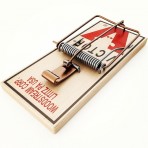Twitter Summary: Teams that promote constructive conflict consistently outperform teams that focus on cohesion.
Principle
My recent posts have been about David Burkus’ book The Myths of Creativity and some of the great ideas he shares. For this post I want to write a bit about what Burkus calls The Cohesive Myth.
A lot of us buy into this myth, where we think “most creative ideas and products come from teams that suspend criticism and focus on consensus.” Burkus shows through a few examples, like Pixar, how bogus this idea is. In reality, teams that promote constructive conflict in their creative process consistently outperform teams that focus on cohesion.
Burkus makes his point when he shares a story about Pixar animation and how they make films. Pixar has given us great movies like Toy Story and The Incredibles.
 At Pixar the day always starts for their employees inside a small screening room with all the animators, directors, and computer scientists grouping together in small teams. Once inside those screening rooms everyone is given free rein to critique and question everything they start seeing on screen – nothing is sacred and everyone is allowed to challenge another person’s work.
At Pixar the day always starts for their employees inside a small screening room with all the animators, directors, and computer scientists grouping together in small teams. Once inside those screening rooms everyone is given free rein to critique and question everything they start seeing on screen – nothing is sacred and everyone is allowed to challenge another person’s work.
This can be an extremely laborious process since each frame is fair game for critique. However, while the daily criticism is draining, everyone knows that this is how great films are made time and time again. For those who work at Pixar, the more critique received for each frame, the higher their chances are at making a great film. They understand productive friction breeds quality, while cohesive teams most often produce exactly the opposite.
But there’s a key step to making the conflict constructive and not simply confrontation. If you have a complaint or critique, you have to come with a solution. If not, you’re just a whiner.
Pixar does this perfectly and they call it “plussing.” Whenever someone critiques a frame during their daily session, they must also provide a suggestion about how to improve the work – a plus. Otherwise the person receiving the criticism could feel personally attacked.
The one receiving the suggestion doesn’t necessarily have to accept or agree with the suggestion, but plussing makes it much more likely that they will. Plussing keeps the vibe positive and attention focused on the work and not the animator.
Burkus makes it pretty clear, teams full of yes-men rarely push ideas to creative limits; so overly cohesive organizations rarely reach creative greatness. While teams that promote constructive criticism are much more likely to produce innovative solutions. Look around you. Are you surrounded by yes-men?
Conflict Breeds Creativity and Making Connections
I can’t play the drums to save my life. My feet end up playing the same beat so I look like a cymbal-clapping monkey bouncing my knees in time with each other – just horrible.
In my role as guitar player/singer for my band Upstanding Youth we’ve spent many hours in the rehearsal and recording studio banging out new ideas. I learned early on that constructive feedback requires a suggestion to be effective, otherwise you’re just making obstacles to any kind of progress and making people feel bad.
During our studio sessions I would often have a drum beat idea that I thought was great and I would try to translate what was in my head to the drummer, usually with poor translation. Remember, I’m a cymbal-monkey. More importantly, I learned that if all I said was, “I don’t like that beat” or “I’m not feeling what you’re doing” the positive vibe was sucked right out of the room. Here’s a clip of us working in the studio in Kailua, Hawaii.
Without a suggestion of how to improve the song, any musician likely feels a personal attack on their abilities instead of a constructive criticism on the music. So I had to learn to do two things: 1) If the drum idea in my head wasn’t an absolute game changer it was better to just keep plugging away at getting the song done and bring the idea up later. If the idea was any good, I’d remember it later anyway. 2) I had to learn to focus on critiquing ideas instead of performances; otherwise people could take that as a personal critique.
If someone told me my guitar playing or singing stunk on any of my songs and didn’t provide suggestions on how I could make it better, I’d just think they’re a jerk trying to tear me down instead of trying to help me be better.
So What?
First, stop avoiding conflict! Find ways to encourage and promote constructive daily criticism in your activities in ways that focuses on actions and not people personally.
Second, do your best to never complain without having a better idea. Stop being a whiner.
Next Weeks Post: Next week I’ll write my last post about The Myths of Creativity, focusing on what Burkus calls The Expert Myth. I’ll share a story about a time in college when I lived in a basement with other musicians and learned a valuable lesson from my roommate.







Leave a reply